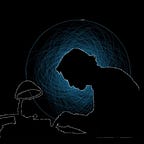Catholics also would say the Bible is the word of God.
Yes, BUT… The Catholic faith stands on a “three-legged stool” of Scripture, Sacred Tradition, and the teaching authority of the Magesterium (the Pope and Bishops). No one of those legs rules over the others. Yes Catholics understand the Bible to be the word of God, but the Church also understands it to be a book written by many people over a long period of time, and in many genres. What is written as poetry, for example, is misinterpreted if it is taken as history. Historical books are misinterpreted if they are taken as prophecy, or what have you. The Catholic Church interprets the Bible in light of 2,000 years of Tradition and past teaching of the Magesterium. It’s a totally different concept than the Protestant notion of leaving it up to each Christian to interpret the meaning for him or herself.
I would still doubt that many religious followers today would point to their sacred text and say: “oh that, its nothing but a corruption of real religion
It’s not the text that is the corruption of real religion, it’s followers who relate to the text as if it were the religion that is the corruption. I imagine most people with an idolatrous relationship to their holy book would change if they were aware of the fact, so they must not be. And nowhere near as many Christians or Muslims as you might think make this error. Because Christians love the Bible does not mean they have confused it with God. If you want to understand what a holy book means to an individual religious person, you’d have to ask that person. I doubt you’d get the same answer from any two believers in any faith. Generalizations are always a bad idea.
I guess my point is that billions of people seem to hold the view that the true path to their religion is via the text
The true path to their religion may well BE through the text. I strongly recommend some finer distinctions here. To venerate a text because it contains trustworthy knowledge about God and instructions for maintaining one’s relationship with God is not the same thing as mistaking the book for God. Christian and Muslim auto mechanics, for example, have no trouble distinguishing the repair manual from the car. I think it’s safe to assume that they also know their holy books are referring to God, and are not themselves God. They do not have an unhealthy relationship to their holy books. They do not “practice the Bible" or “practice the Koran.” They practice Christianity or Islam, with their holy book as a guide. They know the difference.
Hadn’t considered Jediism but it seems to be a fundamentally new phenomenon in that it is the first religion spawned from a piece of writing accepted to be fiction by its adherents.
Oberon Zell-Ravenheart’s neopagan Church of All World’s incorporated the water-sharing ceremony and other elements from Robert Heinlein’s novel Stranger in a Strange Land into their religion, if I recall correctly. Tolkein’s Lord of the Rings impacted a lot of people’s spirituality in the 60s and 70s too, and probably still does. So there are precidents. But Jeddiism probably has the most official adherents.
